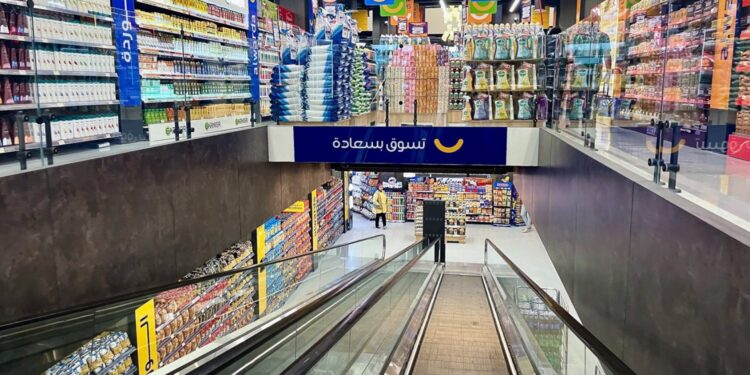Iraqi Prime Minister Mohammed Shia Al-Sudani has unveiled plans to expand state-backed hypermarkets and strengthen local production, aiming to reduce Iraq’s heavy reliance on imports.
Speaking at the inauguration of the Taawon Hypermarket in Al-Bayaa, Baghdad, Al-Sudani highlighted the need to boost domestic industry and lower the country’s $70 billion annual import bill. He also launched five additional hypermarkets via teleconference in Al-Hurriya, Al-Salihiya, Al-Shaab, Palestine Street, and Jamila—each offering food, household goods, and essential products at subsidized prices.
Al-Sudani underscored that reducing import dependency is a national priority and emphasized the Ministry of Trade’s pivotal role in enabling the private sector to ease the strain on foreign reserves. He stated that beyond trade facilitation, the ministry must actively support domestic industries to meet market demand, particularly in the area of food security, where the state must remain “fully engaged.”
Despite fluctuations in foreign currency exchange rates, he noted that food prices have been kept under control through cooperation with the private sector. His government, he added, has partnered with private investors to establish retail outlets that supply essential goods at controlled prices, ensuring affordability for Iraqi consumers.
Describing the Taawon Hypermarket initiative as a modernized version of Iraq’s former state-run central markets, Al-Sudani set a goal of ensuring that at least 60% of the products sold in these hypermarkets are locally produced or manufactured in Iraq.
He also urged Iraqi businesses to capitalize on what he called “unprecedented government support,” outlining key incentives such as sovereign guarantees for industrial investments, expanded financing through the Iraq Development Fund, tax and loan reforms to spur economic growth, and banking sector improvements to streamline business transactions.
Reaffirming his commitment to private sector development, Al-Sudani stressed that Iraq’s economic future hinges on a strong domestic industry, insisting that there is no alternative to fully empowering local businesses.
(Source: Shafaq News)























































